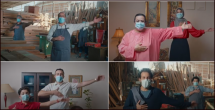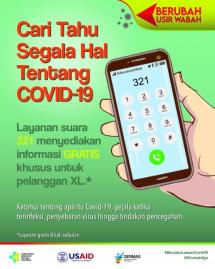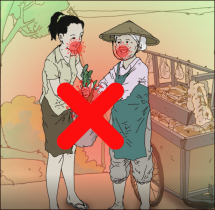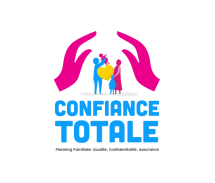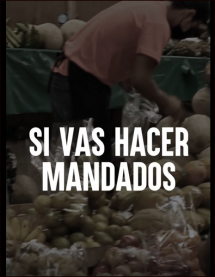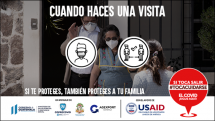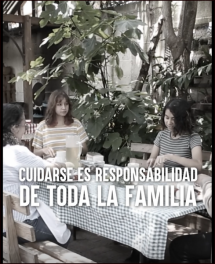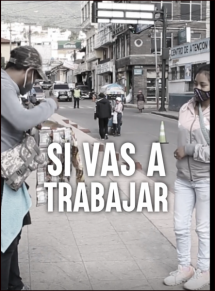Bijak Pakai Masker/Masker An Infographic about the importance of wearing mask as one of the three key behaviors in COVID-19 prevention 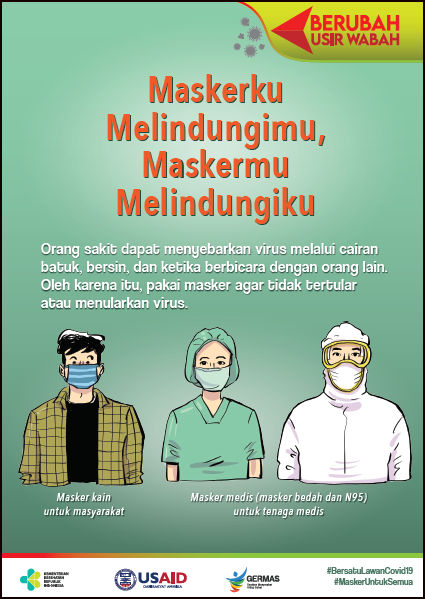 | Sumber Infomasi – Media Social (source of infomation – social media) An infographic about trusted sources of information related with COVID-19 on social media. These accounts belongs to the Directorate of Health Promotion and Community Empowerment Ministry of Health (Instagram, Twitter, Youtube, Facebook, and website) 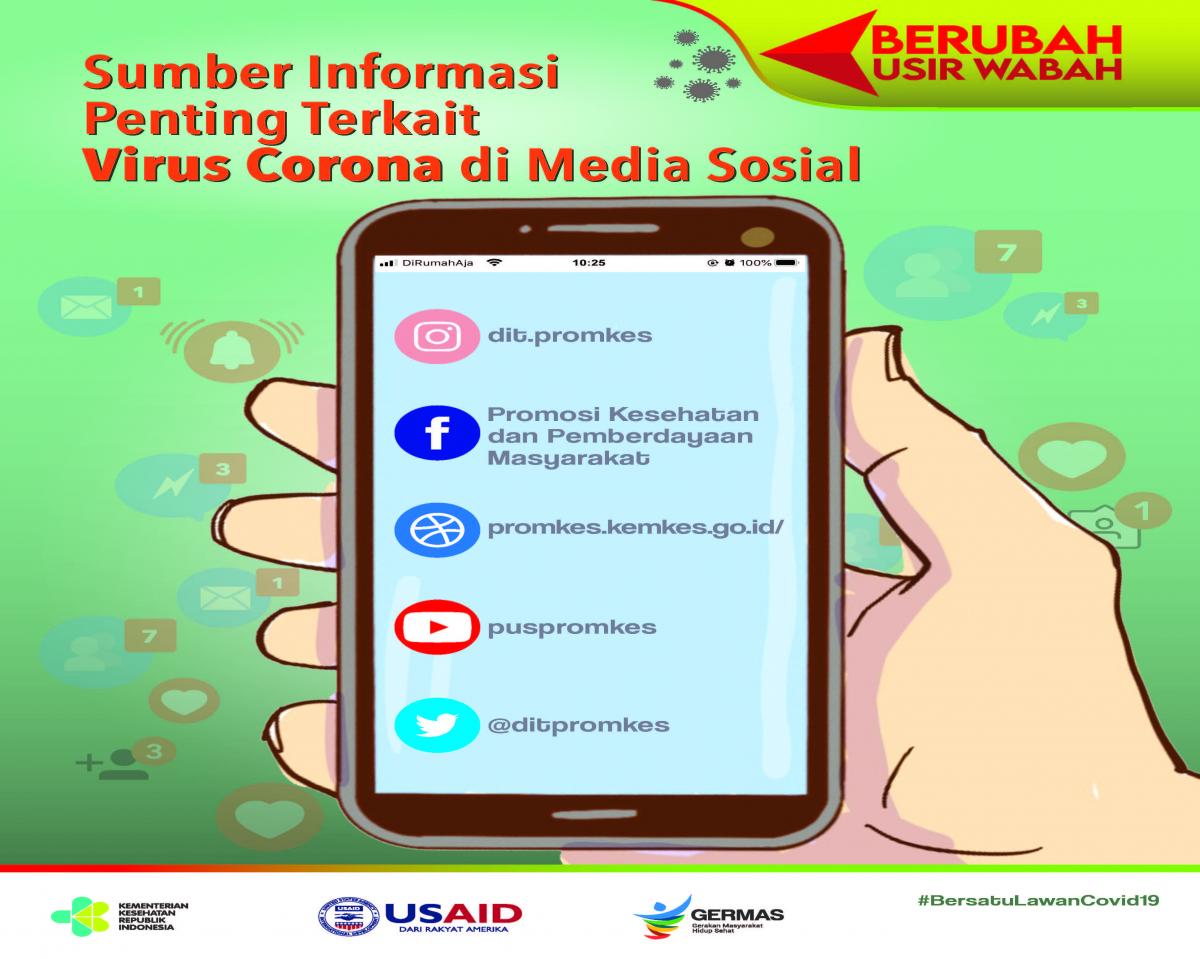
|
Jaga Jarak/Phyisical distancing An infographic about the importance of physical distancing as one of three key behaviors in COVID-19 prevention, including the examples of some activities that we usually did before the pandemic such as gathering, that is now forbidden/not recommended. | Cara Batuk & Bersin/coughing An infographic on how to cough and sneeze properly in order to prevent the spread of COVID-19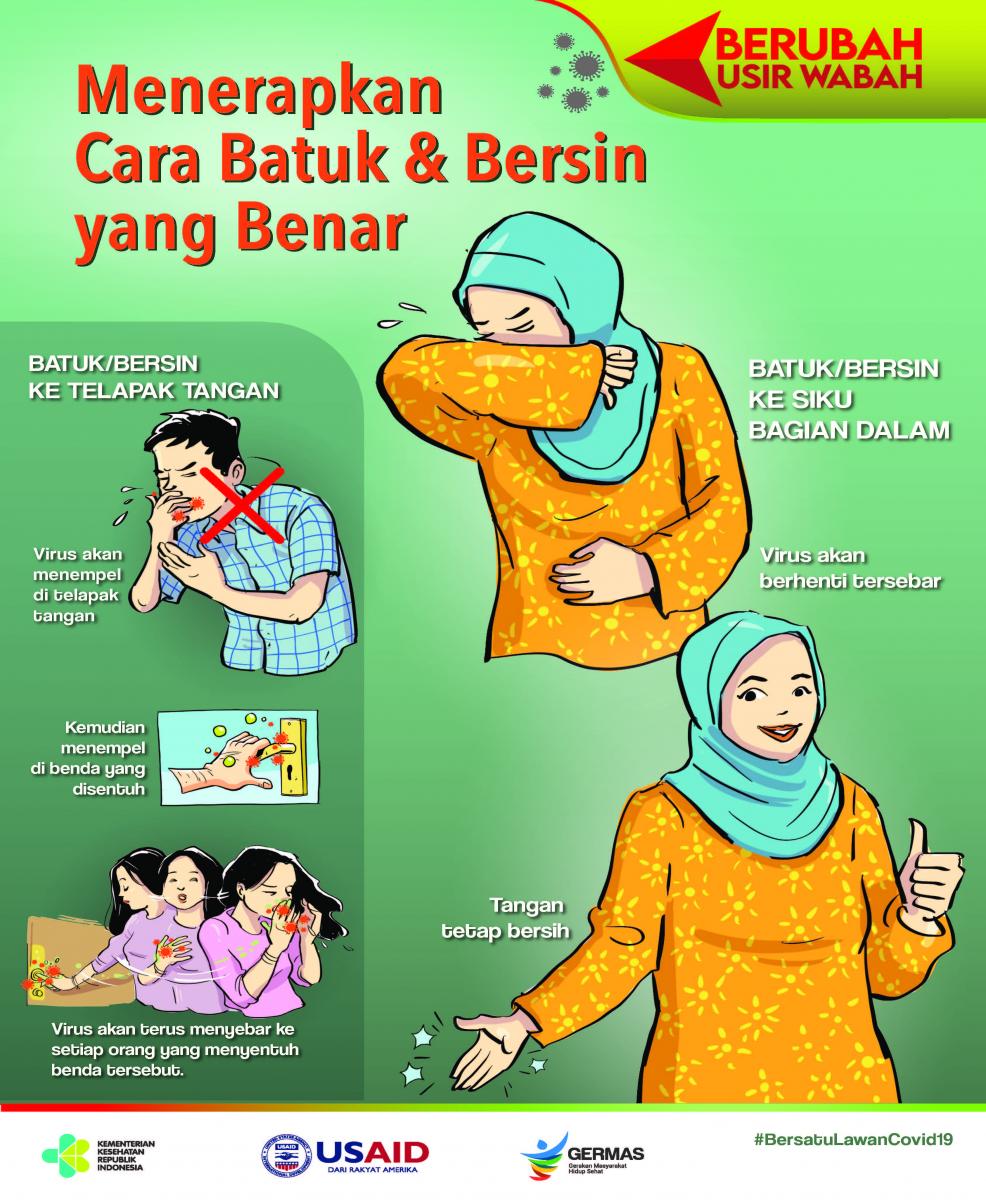 |
Interactive Voice Response (IVR) An infographic about IVR service related with COVID-19. The menu consists of what is COVID-19, the spread and symptoms, and prevention. The IVR menu is updated regularly based on the latest update provided by the Ministry of Health. 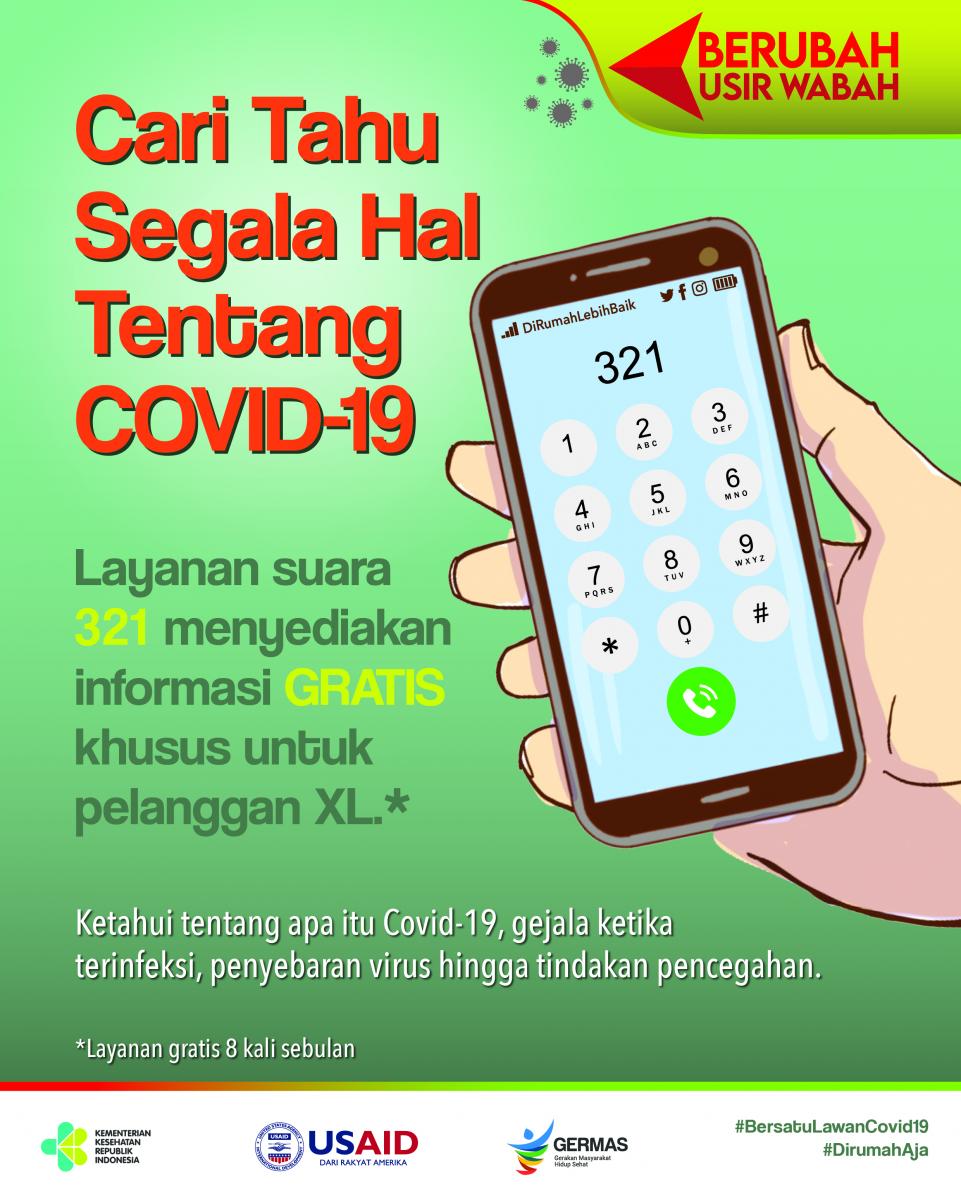
| Jika harus ke dokter/Faskes (visiting health service) An infographic about new health protocols related with COVID-19 when we visit health services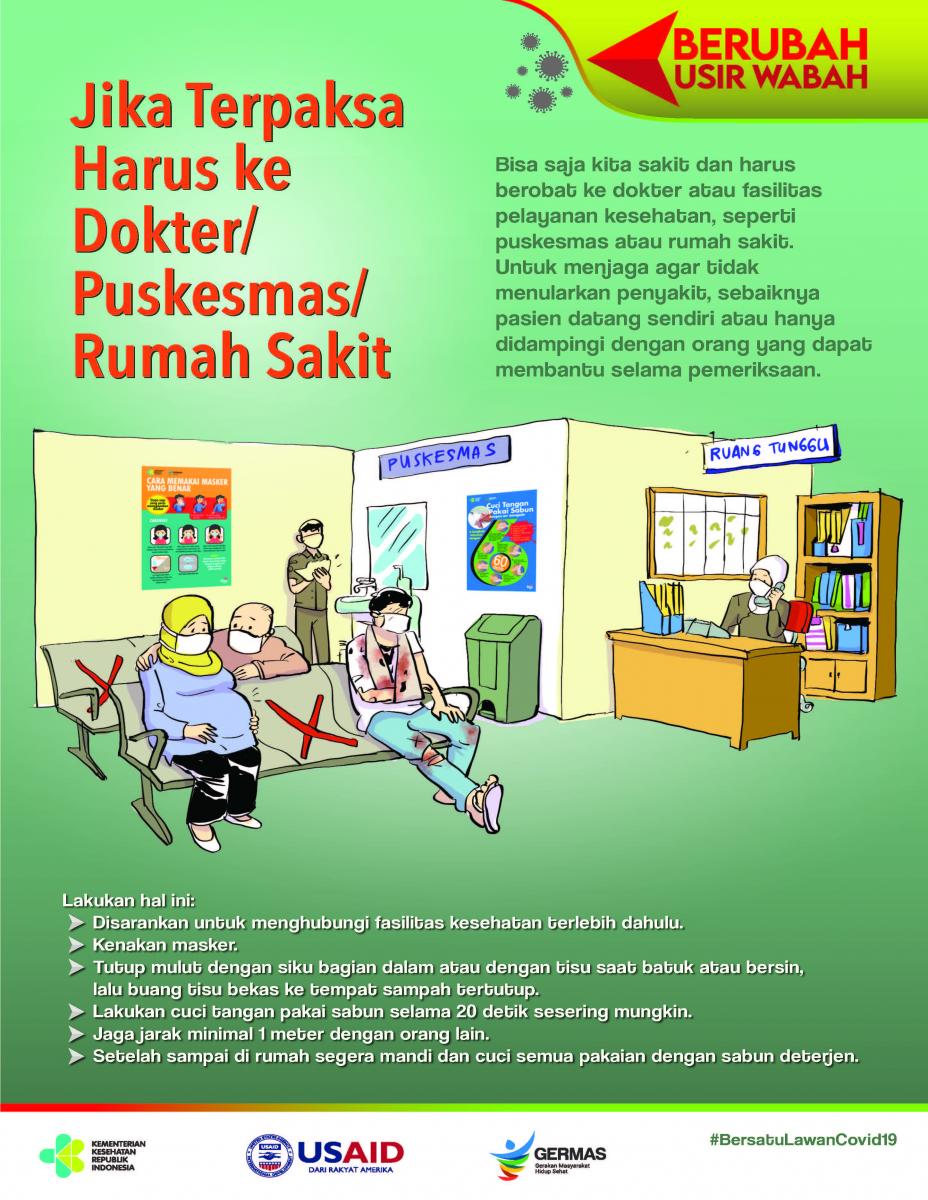 |
Jika keluar rumah (if we have to go out) An infographic about health protocols related with COVID-19 (wearing mask, maintaining physical distancing, and have the handsanitizer ready) when we are out in the public. 
| Sumber Infomasi – Website – source of infomation – website An infographic about source of information – website. These websites are managed by the COVID-19 National Task Force. 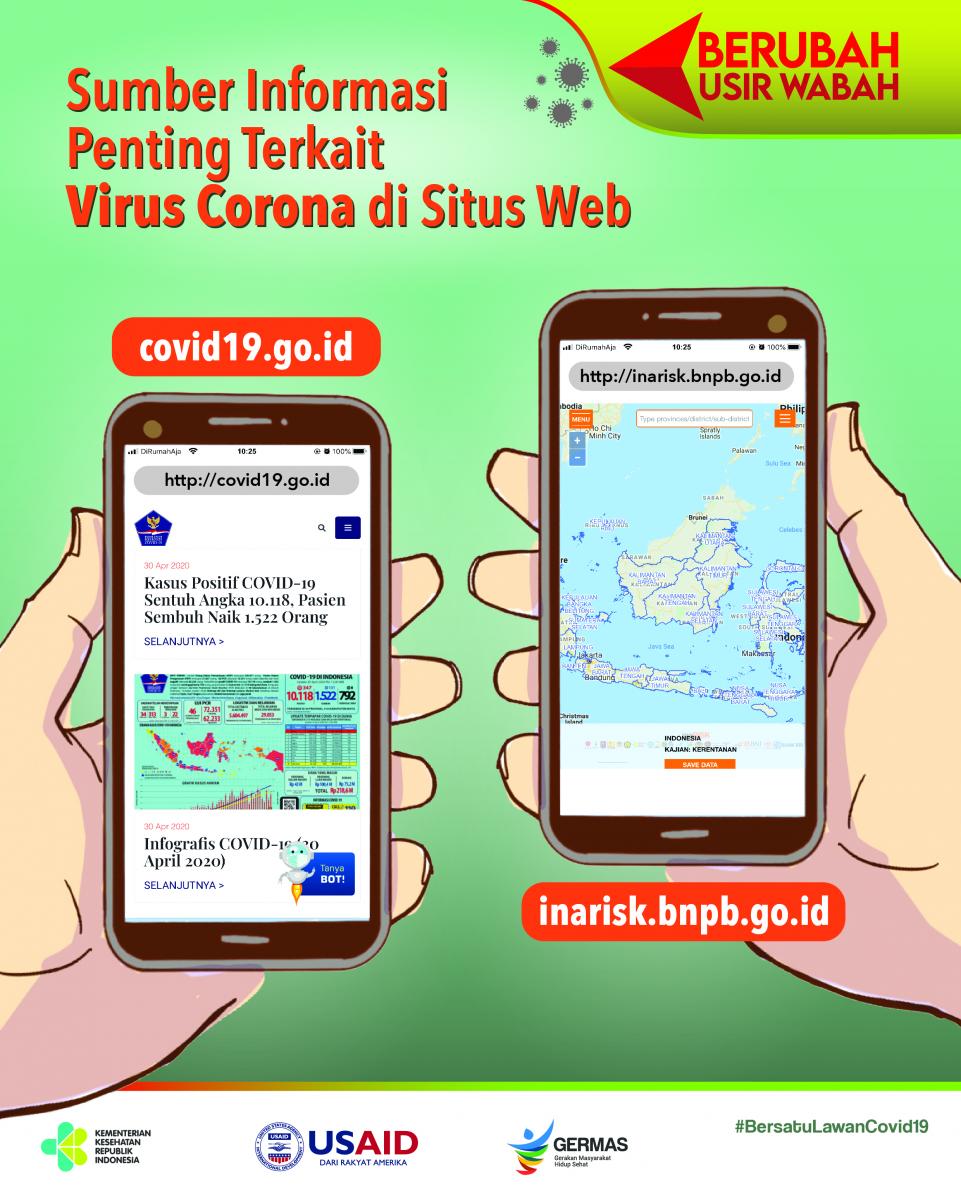
|
Cara Buat Masker Sendiri (how to make your own cloth mask) An infographic about how to make your own cloth mask 
| Ibadah dari rumah (praying from home) An infographic about praying from home since most of the religious sites are closed due to COVID-19 especially related with maintaining physical distancing. 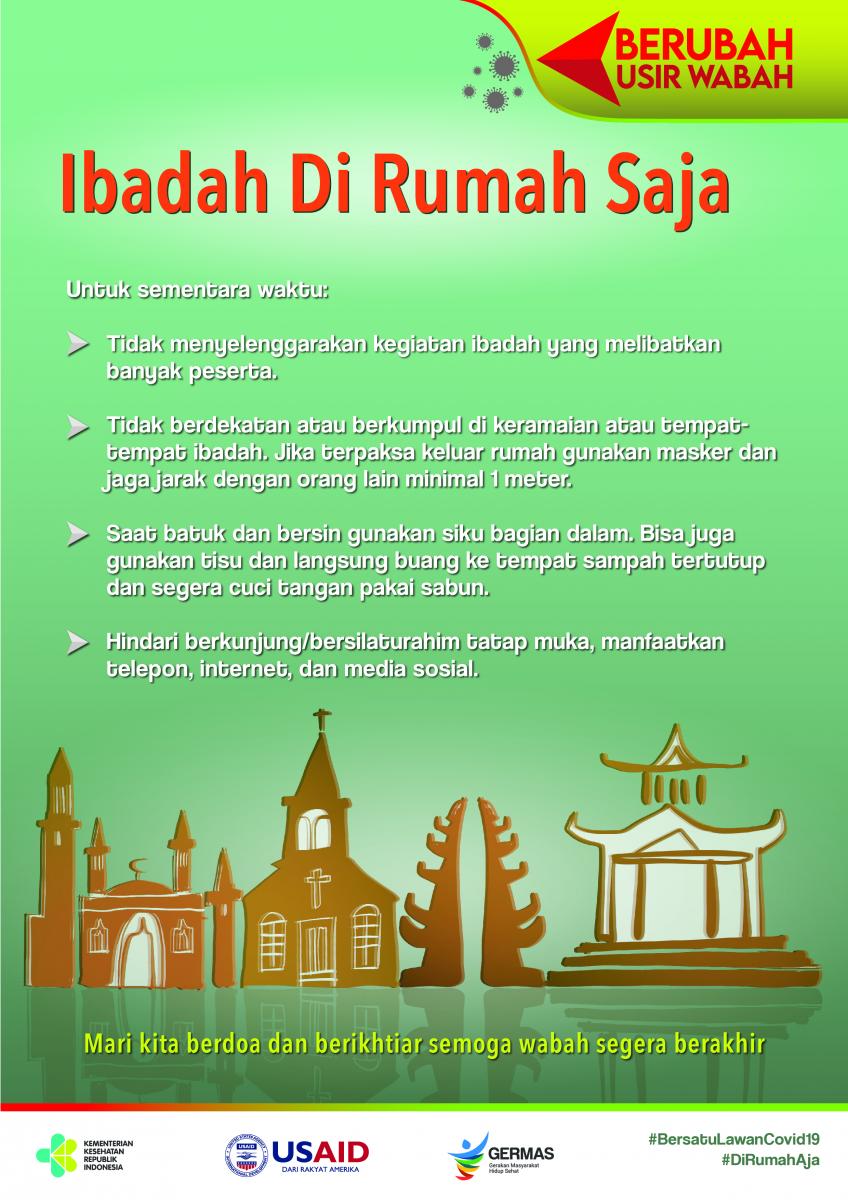
|
Peran Nyata Tokoh Masyarakat (roles of community leaders) An infographic about the roles of community leaders in COVID-19 pandemic such as providing valid information to counter hoax, misinformation, and stigma 
| Cuci Tangan Pakai Sabun (handwashing) An infographic about handwashing with soap as one of the three key behaviors in COVID-19 prevention, which also includes the steps in doing proper handwashing with soap. 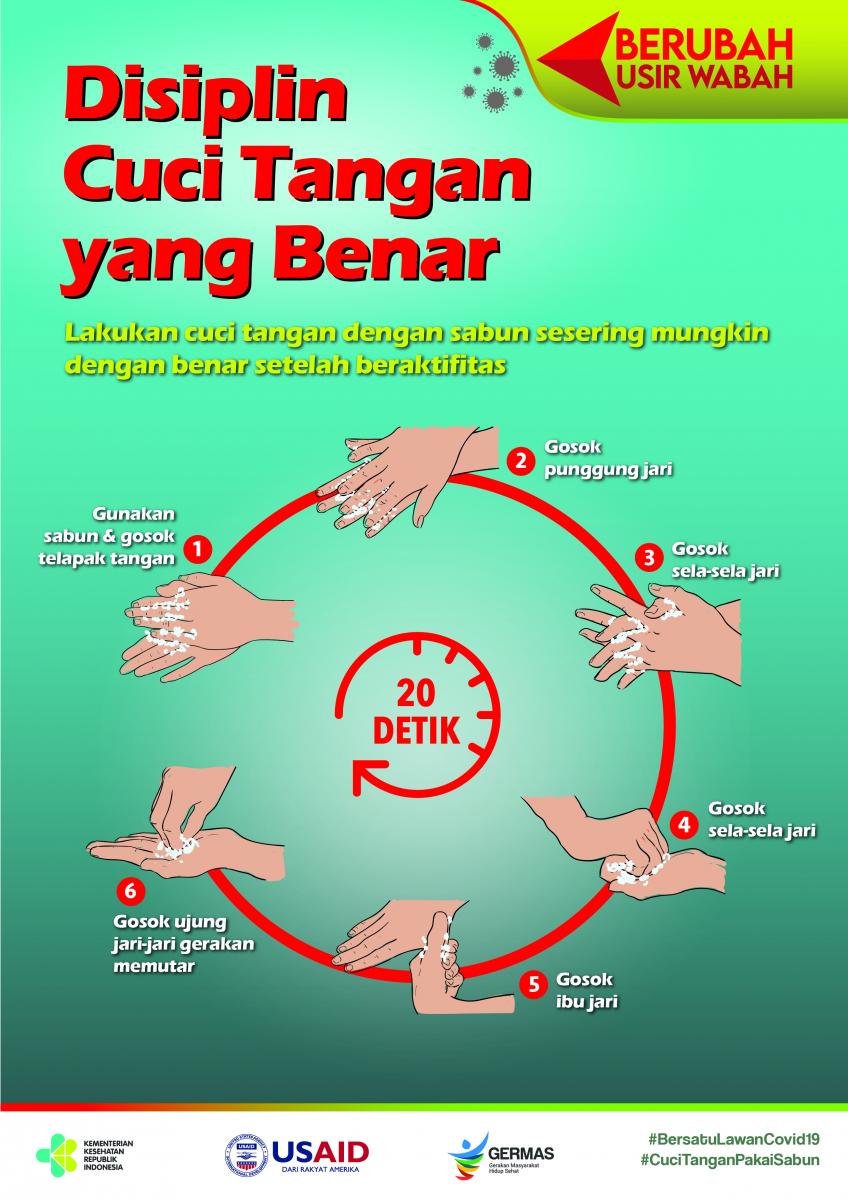
|
Isolasi mandiri (self-isolation) An infographic about self-isolation; what do we need and can do during the 14 days of isolation. 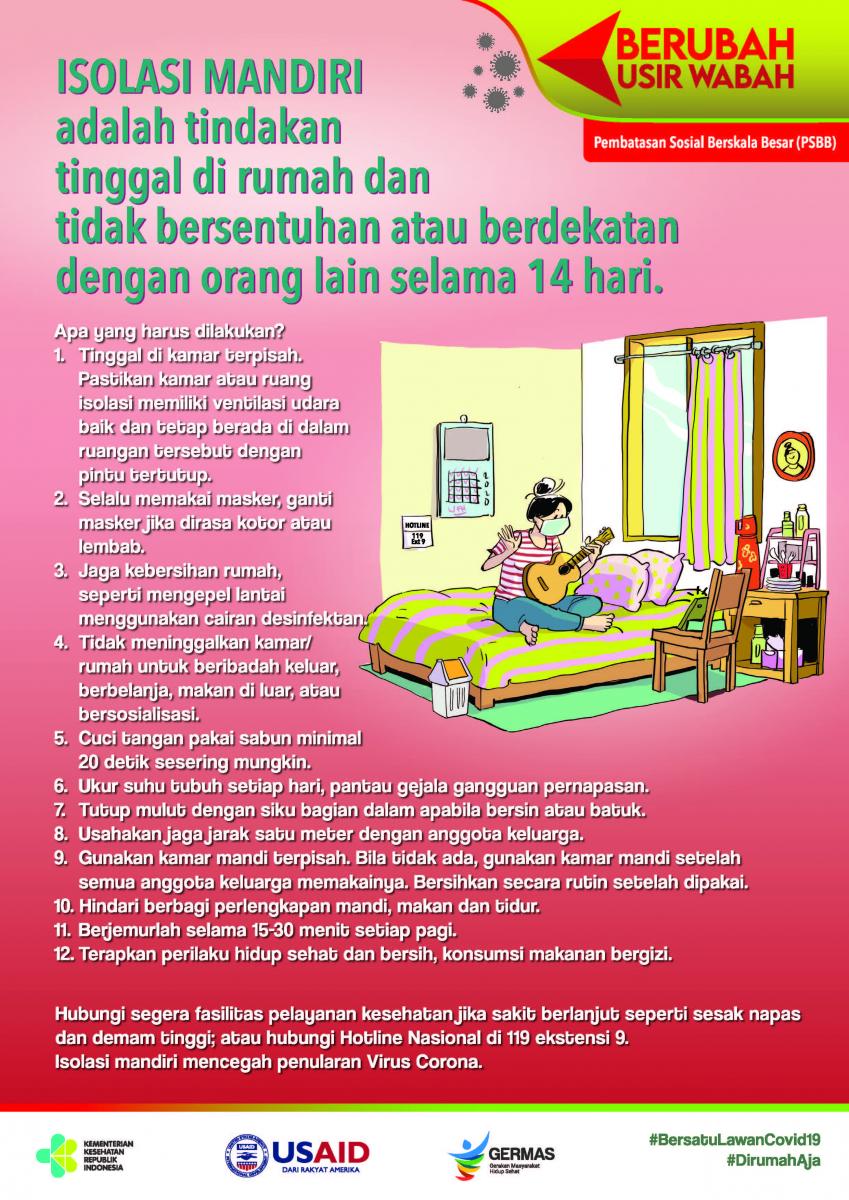
| Jika sakit jangan panik (what to do when we are sick) An infographic about not panicking when we have similiar symptoms with COVID-19. 
|
Orang Tanpa Gejala/asymptomatic person An infographic about asymptomatic person, including the definition and what to do if you fall into this category 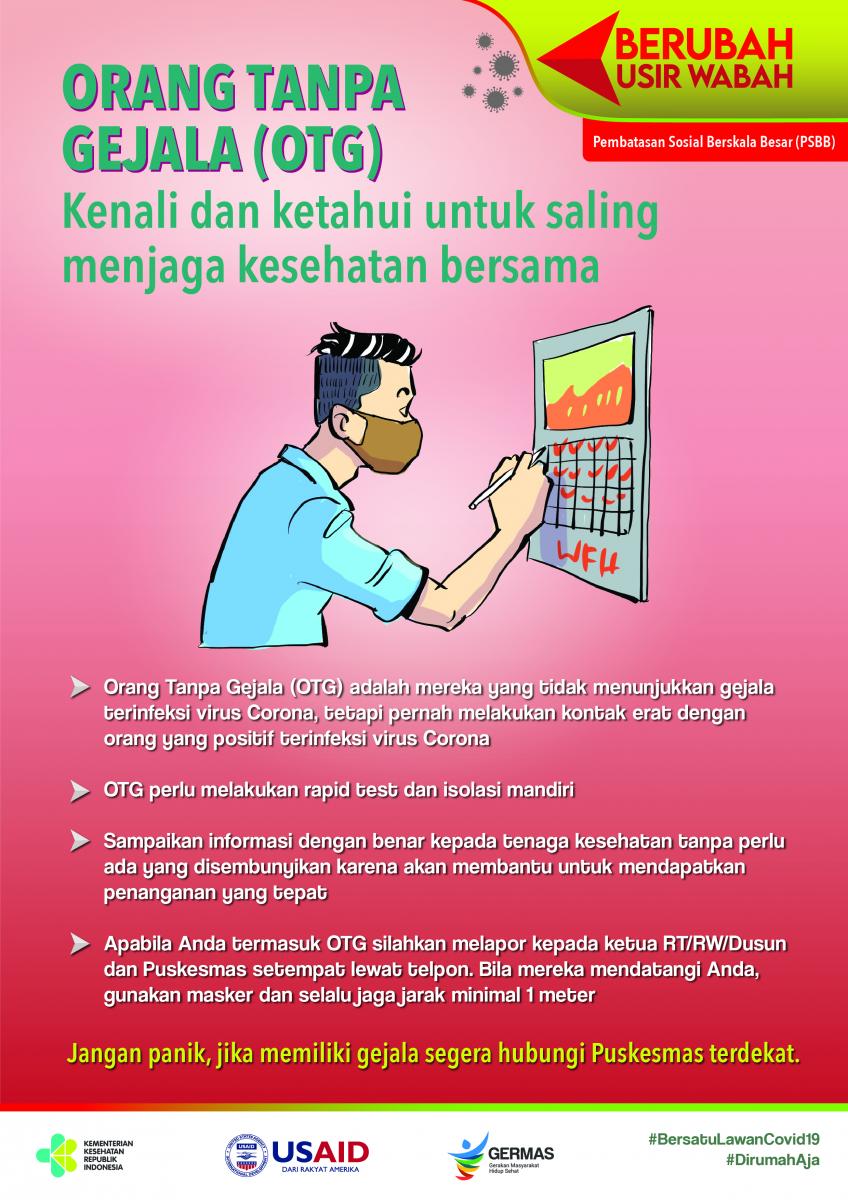
| Orang Dalam Pemantauan/Suspect An infographic about people who are suspected to get COVID-19 and what to do when you fall into this category 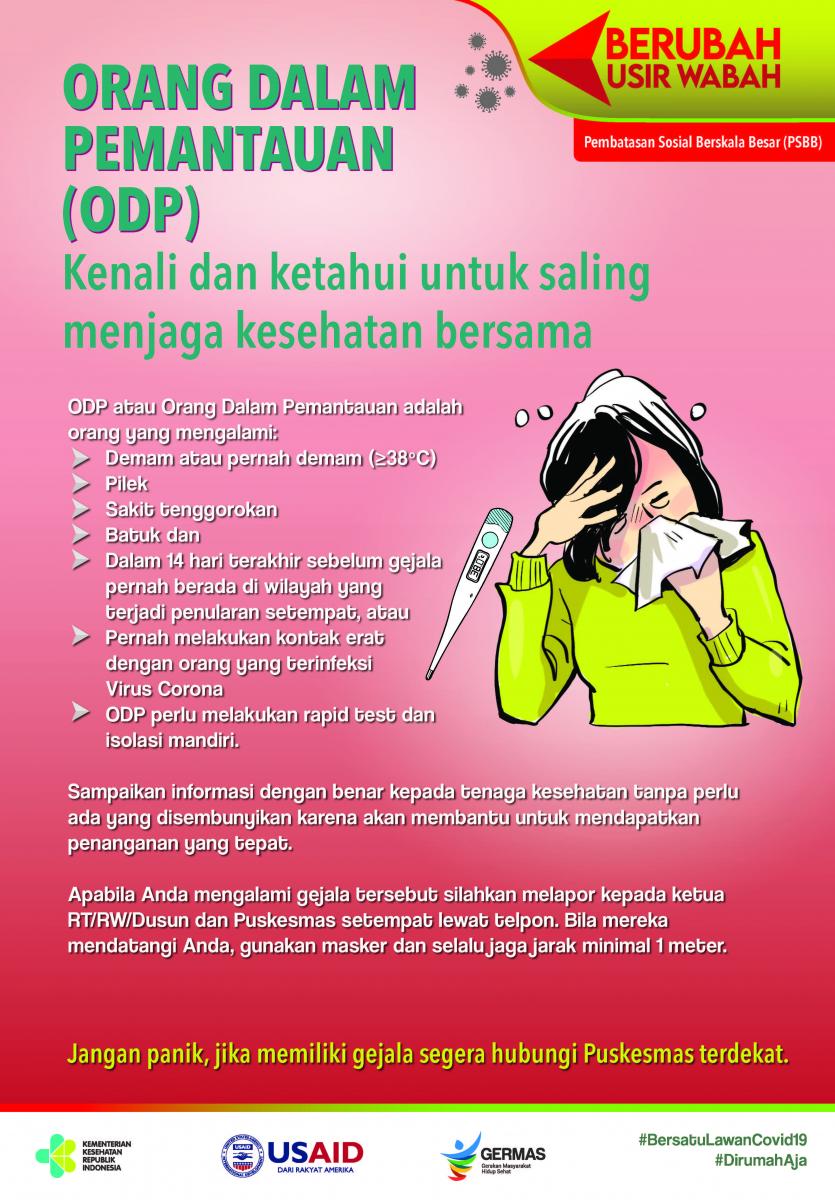
|
Pasien Dalam Pemantauan/Confirmed case An infographic about people who are confirmed to have COVID-19 and the general symptoms of COVID-19 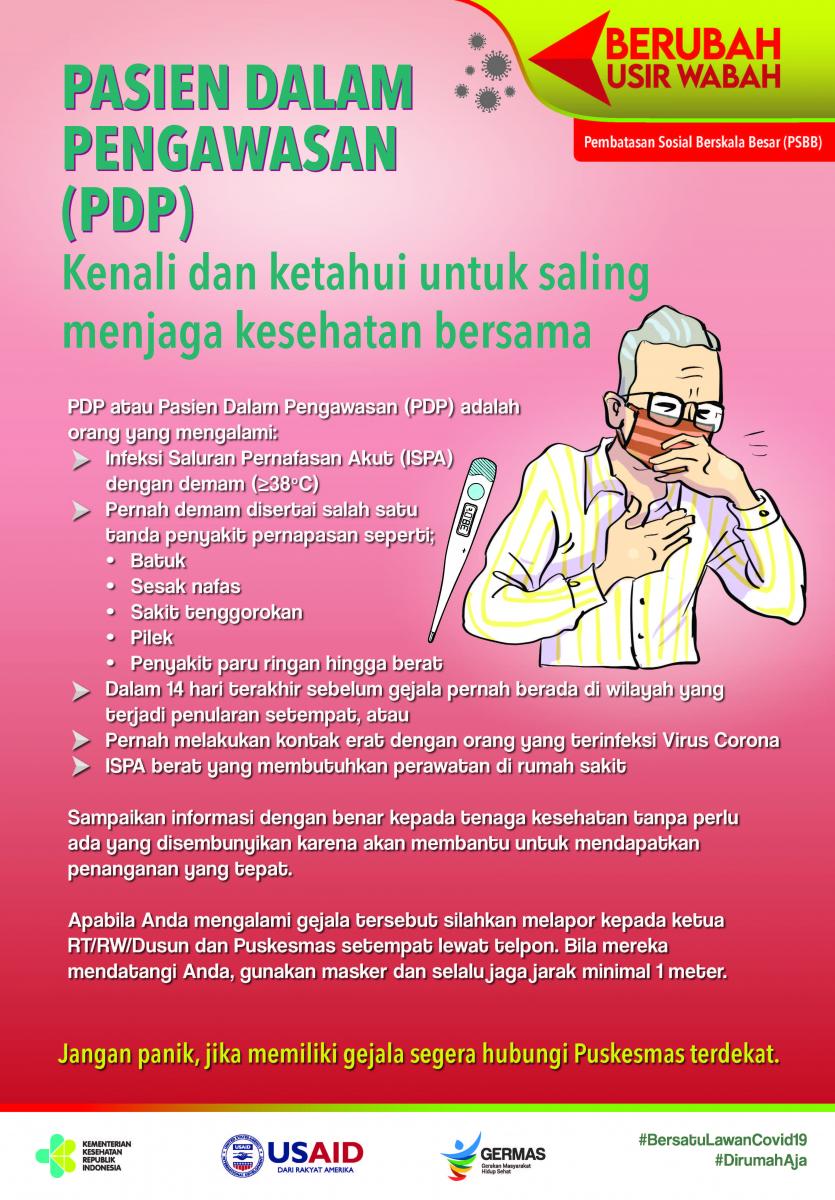
| Apa yang bisa dilakukan saat PSBB/Large Scale Social Restriction An infographic on what can we do during the large-scale social restriction including practicing the three key behaviors for COVID-19 prevention 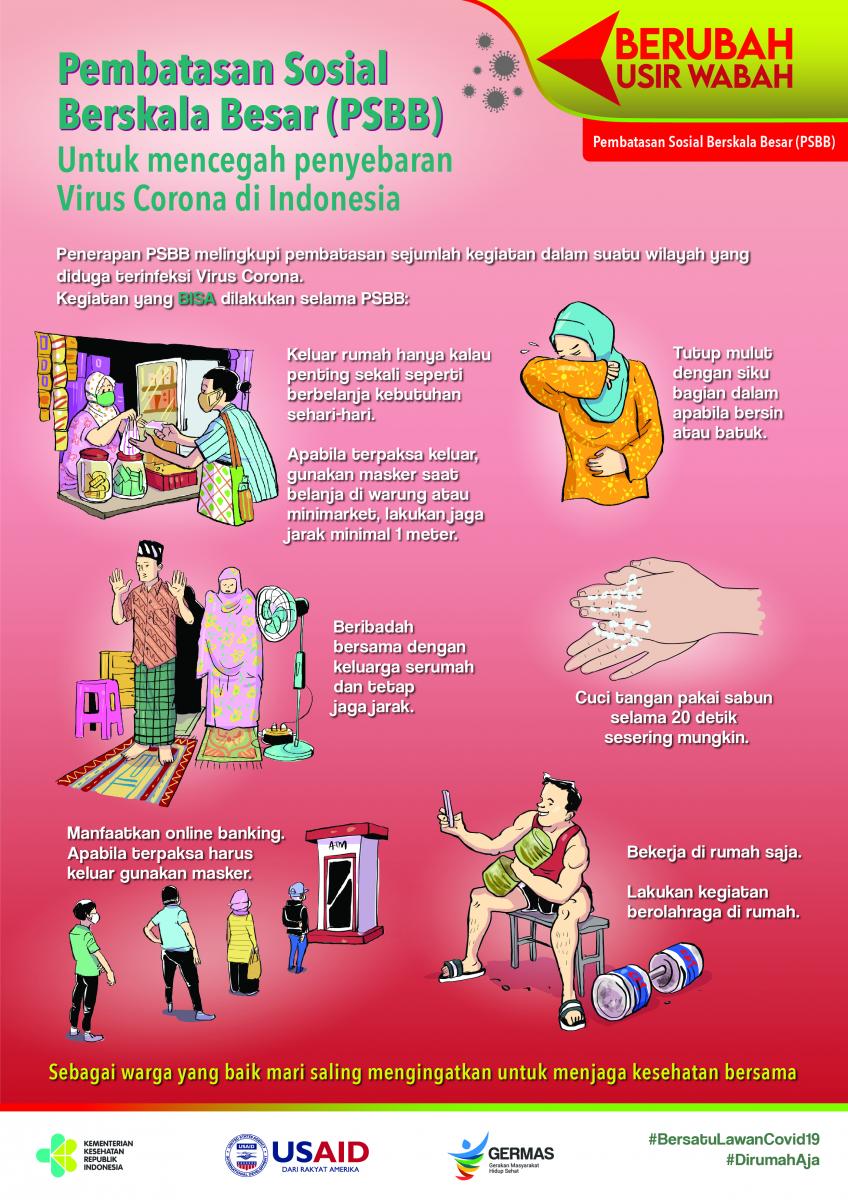
|
Apa yang tidak boleh dilakukan saat PSBB/Large Scale Social Restriction An infographic about activities that are not recommended during the Large-Scale Social Restrictions including gathering, praying in religious sites, education in school, etc. 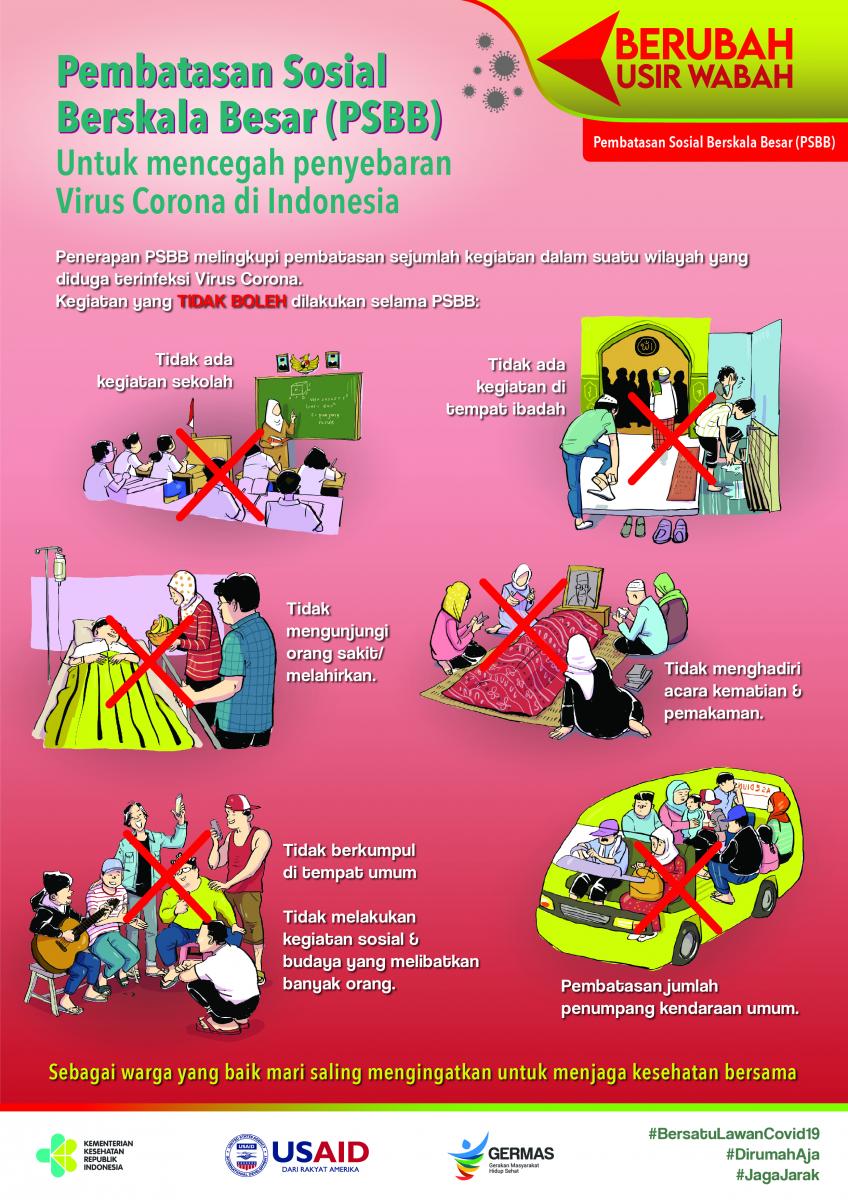
| Nutrisi Puasa/Nutrition during fasting month An infographic about maintaining good nutrition intake during fasting month in order to stay healthy during the COVID-19 pandemic 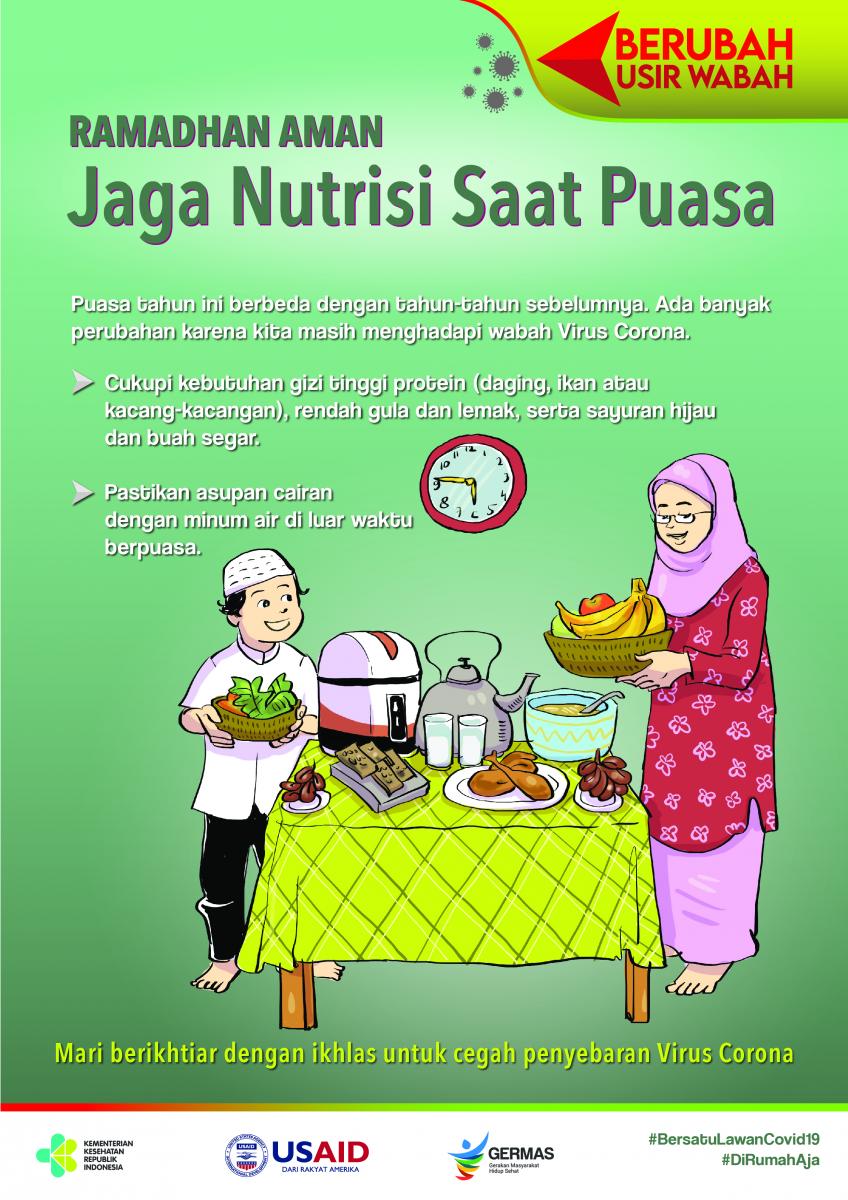
|
Silaturahmi dengan Teknologi An infographic about the use of technology to meet families and friends (virtual meeting) especially during the fasting month and Eid holiday. 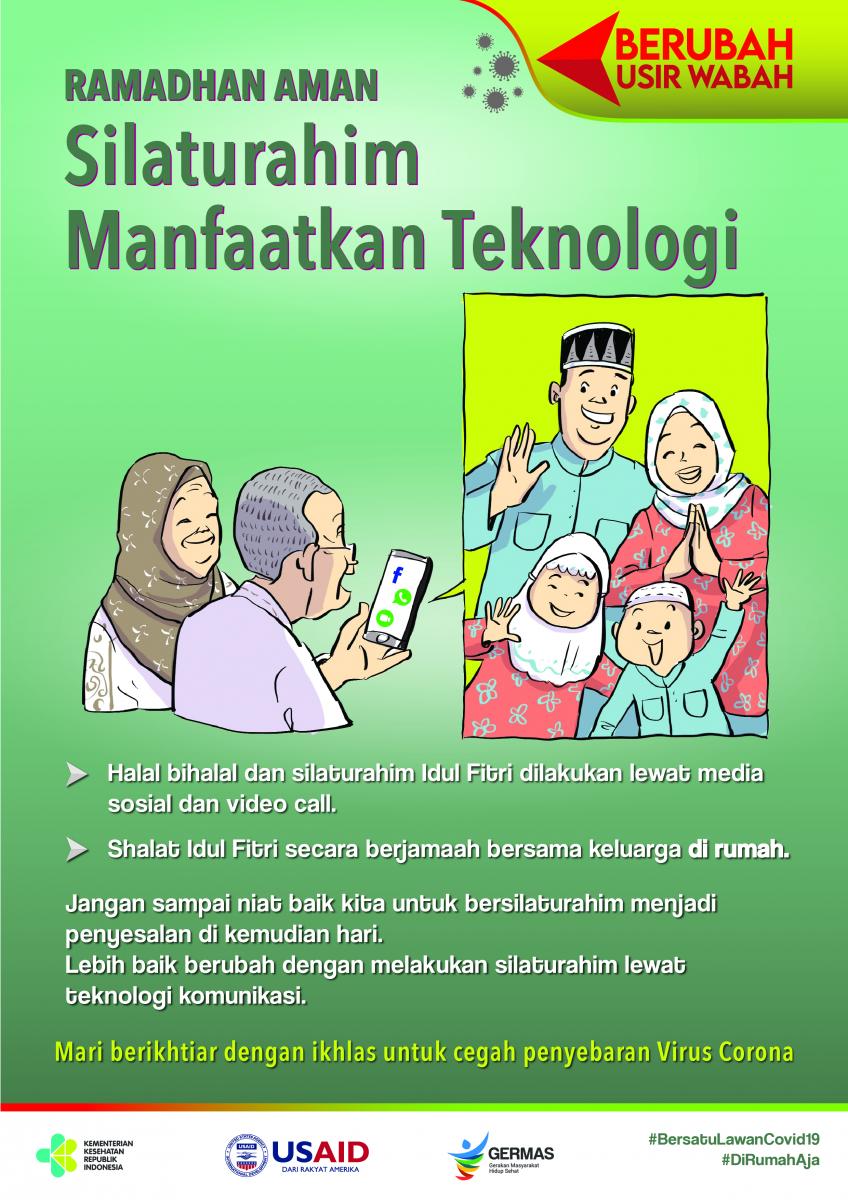
| Tidak Mudik An infographic about not visiting families in the village especially during the fasting and Eid Holiday. Visiting families in the village during fasting month and Eid holiday is considered as a yearly tradition for Indonesian people especially for the moslem. 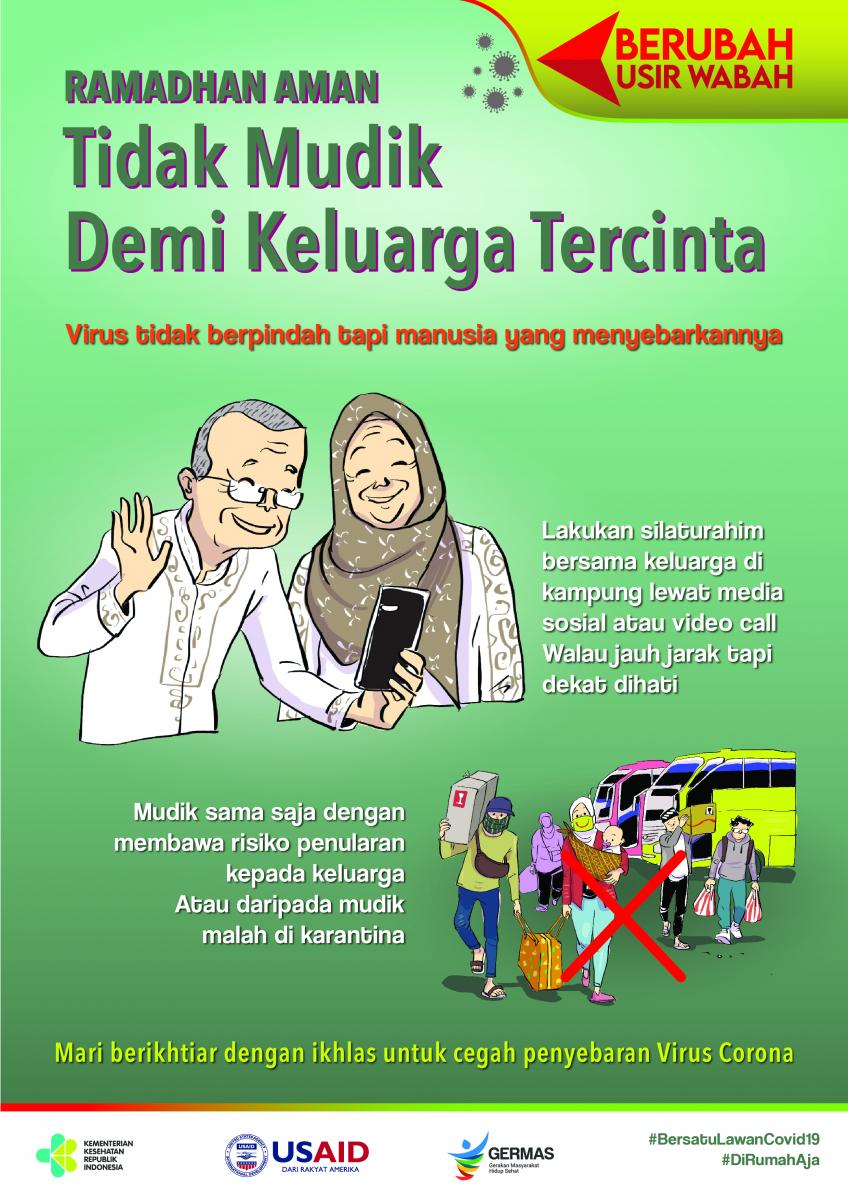
|
Sholat Tarawih dan Sholat Ied An infographic about not conducting sholat tarawih (special prayer during fasting month) and sholat Ied (special prayer on Eid day) in public. It is recommended to do both prayer at home with limited number of people. 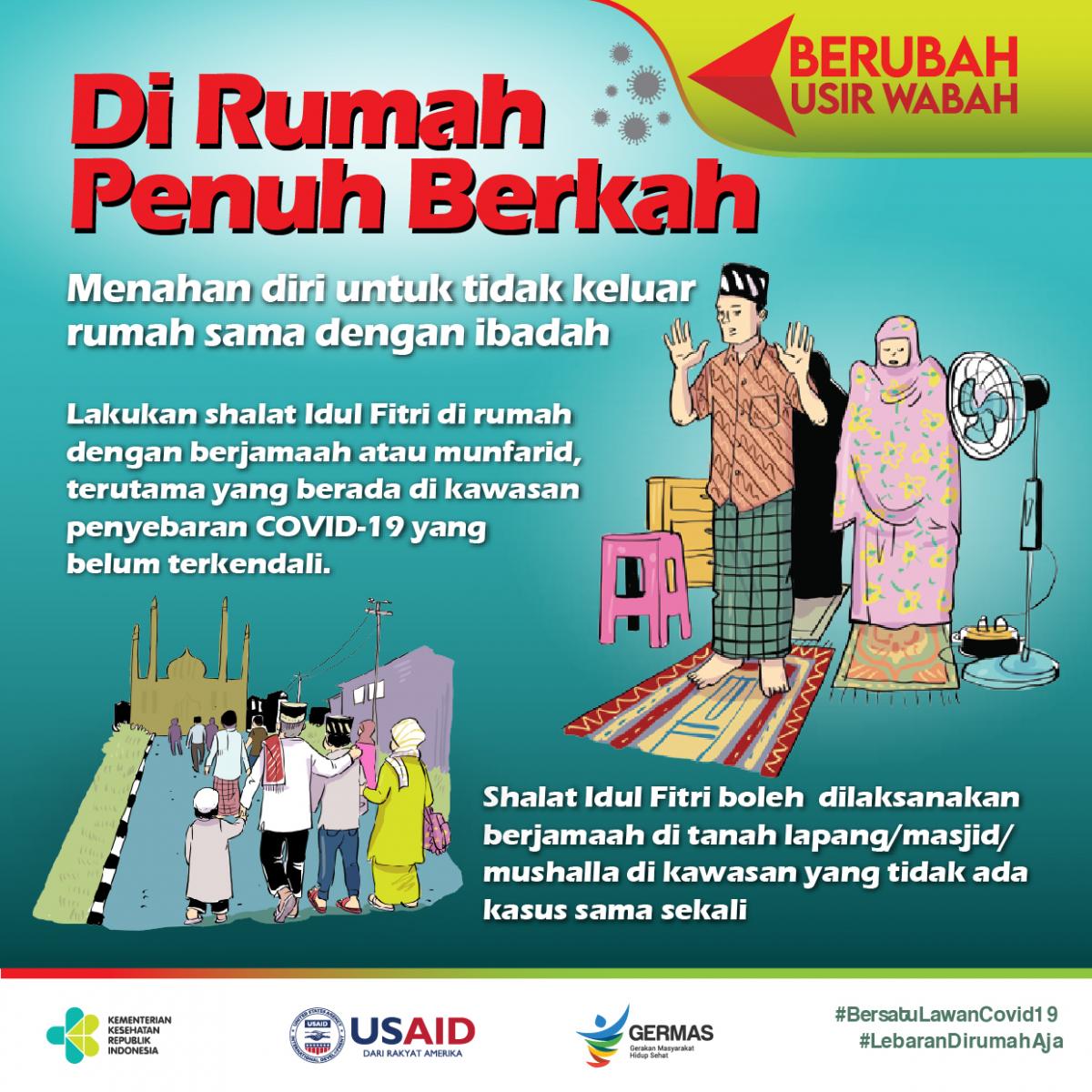
| Ramadhan di rumah saja An infographic about staying at home during fasting month. In Indonesia, it is tradition to get together for breaking the fasting each day. However, during the COVID-19 it is recommended not to do this kind of tradition, instead, it is better to break the fasting at home with family. 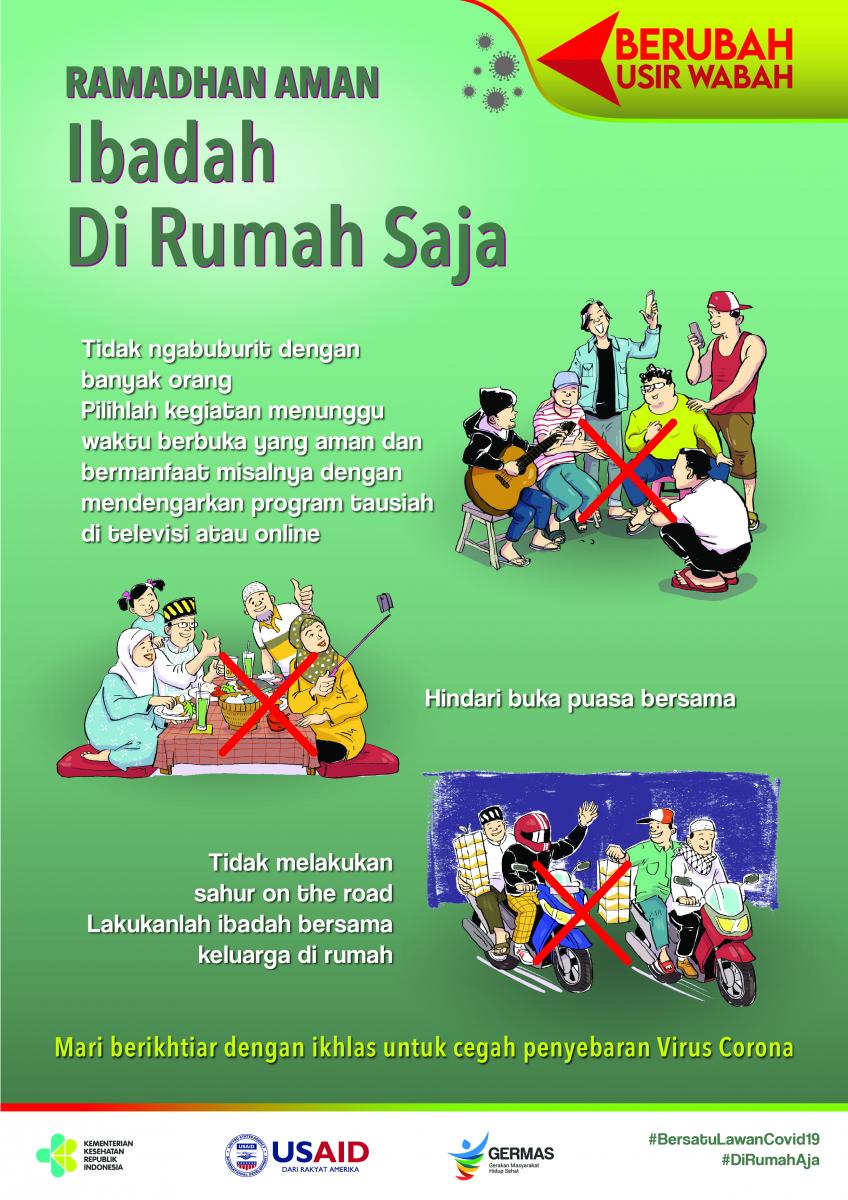
|


